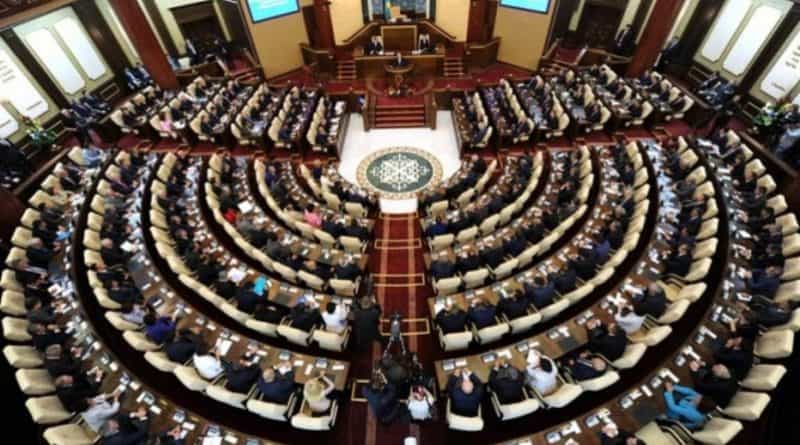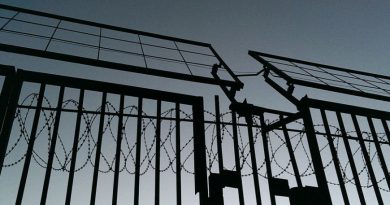Kazakhstan: Senators didn’t miss the amendments tightening control over social networks
The Senate (upper house) of the Parliament of Kazakhstan discussed the draft law “On amendments and additions to certain legislative acts of the Republic of Kazakhstan concerning the protection of the rights of child, education, information and informatization”. To the surprise of the public, the senators didn’t approve the most scandalous amendments regarding the tightening of control over social networks.
As ACCA has already reported, in March, the deputies of the lower house of the Parliament of Kazakhstan approved amendments to legislative acts on the protection of the rights of child, education, information and informatization; including those that obliged social networks to remove illegal content within a day from the moment they received an order from the authorized bodies: most of all, Internet harassment and bullying.
In particular, the amendments proposed to oblige the owners of social networks and messengers operating in Kazakhstan (the average daily access to which is more than 100,000 users per month) to appoint their legal representative for interaction with the Ministry of Information and Social Development.
“And this legal representative, after receiving the order, will be obliged to take measures within 24 hours to remove information that violates the requirements of the laws of the republic,” Jamilya Nurmanbetova, Chairman of the Committee on social and cultural development of the lower house of the Parliament, explained at the presentation of the bill.
However, the public of Kazakhstan took these attempts to tighten control with hostility.
“We urge not to adopt this bill. These proposals threaten to infringe human rights and interests. They allow the Ministry of Information and Social Development, under the pretext of protecting children from online bullying, to demand the removal of almost any content, limiting access to the entire foreign Internet platform in case of refusal. These amendments are unconstitutional, as they contradict the Constitution of Kazakhstan,” the international journalism center MediaNet stated.
At the end of March, a petition appeared on avaaz.org website to collect signatures against the adoption of these amendments.
“This bill, along with logical and necessary provisions, contains a number of norms known as the Amendments of Sarym-Zakiyeva. They open up opportunities for restricting access to social networks and instant messengers in the country. The adoption of these amendments will jeopardize the presence of Facebook, Instagram, YouTube, Telegram, WhatsApp and others in the Internet space in Kazakhstan. Millions of Kazakhstanis use them to communicate, conduct business and participate in the political life of the country. This is not only a blow to the political course of Kazakhstan to integrate into the world community as a respected player that ensures the observance of human rights, but also a potential blow to the country’s economy,” the petition said.
Despite massive public outrage, the amendments were still sent from the lower house of the Parliament to the upper house for consideration. Under current law of Kazakhstan, bills must be approved by both chambers before being signed by the President. And only after the signing by the head of state, the laws come into force.
On April 13, at the meeting of the Senate Committee on Social and Cultural Development and Science, a preliminary consideration of this bill was held.
“The amendments were developed in order to improve legislation in the field of protecting the rights of children, strengthening the system of state regulation of public relations in the field of protection of the interests of children. The bill provides for the implementation of mechanisms aimed at protecting children from any form of violence against them, including in the field of family relations, education and the information space. In particular, it’s planned to open rehabilitation centers on the basis of existing hospitals and polyclinics. It’s also proposed to reduce the period of registration for obtaining housing for orphans and children left without parental care, the introduction of legislative measures to protect children from bullying, including countering illegal content on the Internet, etc.,” was noted at the meeting of the Committee by Senator Dinar Nuketaeva.
As a result of the meeting, it was decided to send the bill for consideration by the deputies of the upper house.
As a rule, in Kazakhstan, deputies of the Senate support all (with rare exceptions) bills that come to them for consideration from the lower house. Therefore, human rights activists, journalists and civil activists, who opposed these amendments, were confident that the bill would eventually be adopted. However, the deputies of the upper house pleasantly surprised them.
“The senators removed broad powers from the bill, which allowed the authorized body to restrict access at its own discretion, or suspend the operation of Internet resources, social networks and instant messengers,” Maulen Ashimbaev, speaker of the Senate, said at the plenary session at which this bill was considered.
He emphasized that now the particular attention is on deleting, in cooperation with representatives of online platforms, only information recognized by the expert group as cyberbullying in relation to children.
“We believe that this procedure will allow us to find a reasonable balance between the need for a prompt response to the facts of cyberbullying against children and the society’s need for information. In our opinion, this approach corresponds to the conc/wp and the logic of political reforms carried out in the country on the initiative of the head of state,” Ashimbaev said.




